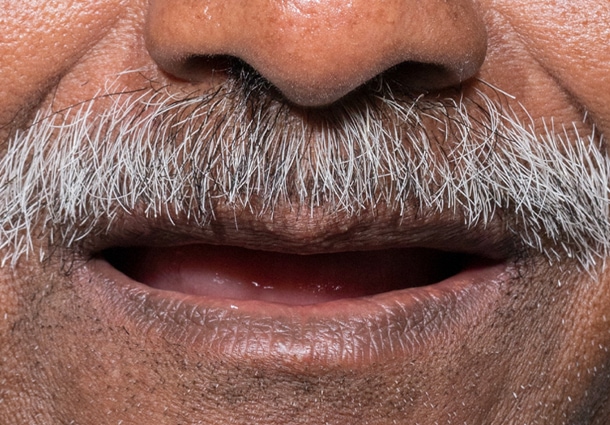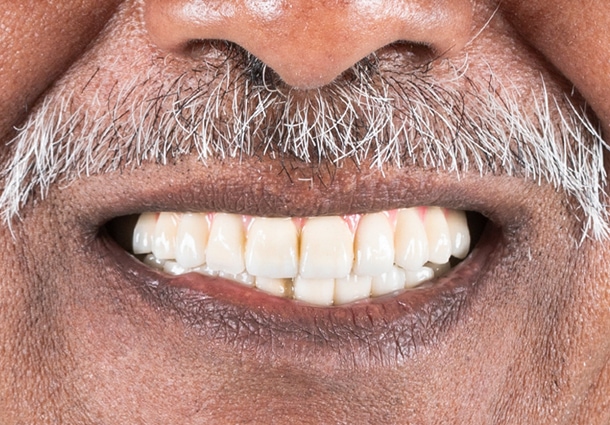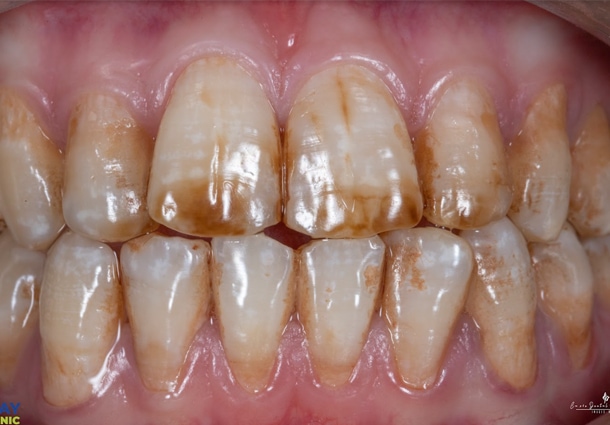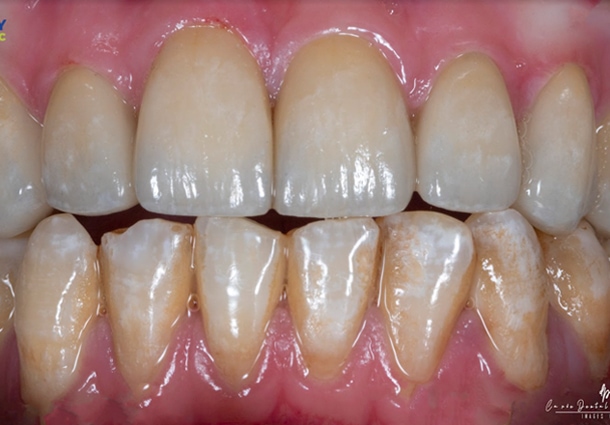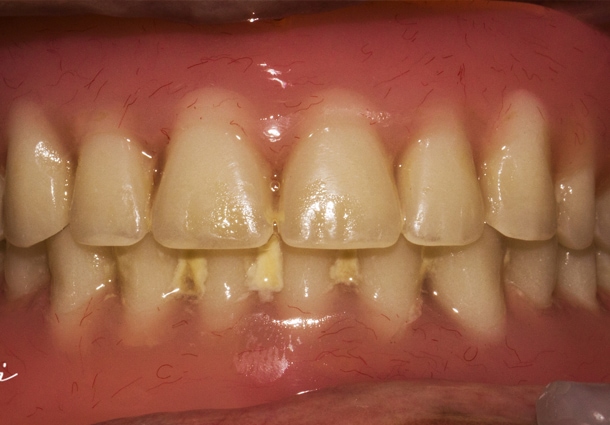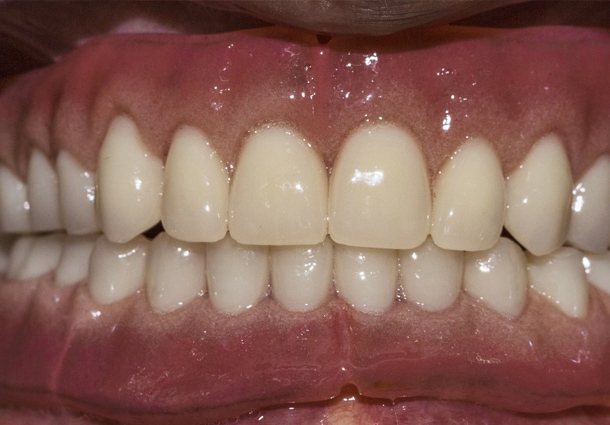Dentures in Ahmedabad
Restorative Dentistry ,Dentures
Get Your Teeth Fixed Today!
Get Your Teeth Fixed Today!
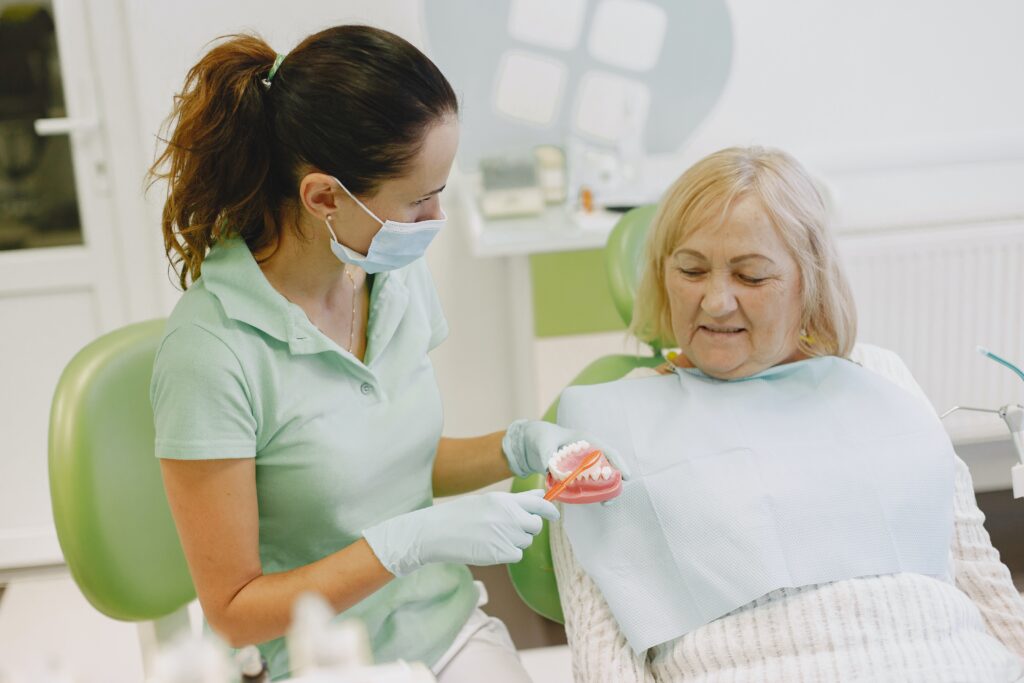
Dentures in Ahmedabad
Dentures are detachable dental prosthesis that can help you smile again by replacing missing teeth.
Whether due to gum disease, dental rot, or an accident, replacing missing teeth will improve both your appearance and your health if you’ve lost all of your natural teeth.
This is because wearing dentures makes it simpler to eat and speak than you would be able to do without teeth—tasks that many people take for granted.
Your face muscles may sag after tooth loss, making you appear older.
Your face and profile may look fuller if you wear dentures.
To minimize changes to your look, they can be fashioned to closely mimic your actual teeth. Your smile may even look better if you wear dentures.
Types of dentures
Conventional
After the remaining teeth are extracted and tissues have healed, which could take many months, this full removable denture is created and fitted in your mouth.
Immediate
On the same day that the remaining teeth are extracted, this removable denture is placed. During a first appointment, your dentist will measure your jaw and create models of it. While you don’t have to go without teeth while your jaw heals, you might need to have your denture redone when it has.
Overdenture
It may be possible to save some of your teeth to protect your jawbone and give your denture solidity and support. A few of your natural teeth that are still present can be covered by an overdenture after your dentist has prepared them. The same purpose can also be achieved using implants.
It may take a few weeks before you feel comfortable with your new dentures. While your cheek and tongue muscles are developing, your dentures may feel loose. Minor irritability or pain are common occurrences. Saliva production may momentarily increase. These issues ought to disappear when your mouth adjusts to the dentures. Following the insertion of a denture, follow-up dental visits are typically required to assess and correct the fit. Always visit your dentist if a problem persists, especially one that causes irritation or soreness.
Full dentures or not, maintaining excellent oral hygiene is still a must. Before putting in your dentures each morning, brush your gums, tongue, and roof of your mouth with a soft-bristled brush to promote tissue circulation and aid in plaque removal.
Are There Alternatives to Dentures?
Yes, cemented bridges can be supported by dental implants, doing away with the necessity for dentures. Although the cost is typically higher, the implants and bridges feel more like natural teeth. Dentures are increasingly being replaced by dental implants, but not everyone is a candidate.
Dentures may potentially be supported with dental implants, which would provide extra stability. Inquire with your dentist for guidance on implants.
What Do New Dentures Feel Like?
For a few weeks, new dentures could feel a little strange or loose until your cheek and tongue muscles get used to holding them in place and you feel comfortable putting them in and taking them out. When you initially start wearing dentures, it’s common for slight irritation or soreness to occur, as well as for saliva flow to rise, but these issues will go away as your mouth becomes used to them.
Will Eating With New Dentures Be Difficult?
It will take some people to get used to and may be uncomfortable for some wearers for a few weeks to eat with new dentures. Start with soft foods that have been chopped up into little pieces to get acclimated to the new denture. Use both sides of your mouth to slowly chew. Add additional meals as you grow adjusted to your new dentures until you resume a normal diet. With hot or hard meals as well as sharp-edged bones or shells, exercise caution. Additionally, stay away from excessively hard or sticky meals. Also, you should refrain from eating gum while wearing the denture & avoid using toothpicks when wearing dentures.
Will Dentures Change How I Speak?
Following the installation of dentures, you can have trouble pronouncing some words. If so, practice speaking the challenging words aloud. You will get used to speaking properly with dentures with time and practice.
Call your dentist if your dentures “click” as you speak. Occasionally, your dentures could fall out when you laugh, cough, or smile. Biting down and swallowing carefully will help you realign your dentures. Consult a prosthodontist or dentist if a speech issue continues.
Are Dentures Worn 24 Hours a Day?
You’ll receive instructions from your dentist or prosthodontist on how long to wear your dentures and when to take them off. You could be required to wear your denture constantly for the first several days after getting it, even while you sleep. Even though it could feel uncomfortable at first, this is the easiest technique to locate the denture’s potential problem spots. After corrections are made, take off your dentures before retiring for the night. As a result, saliva and the tongue can stimulate and clean the gum tissues as usual. In the morning, the denture can be placed back in the mouth.
How do you clean and care for dentures?
When not being worn, dentures should be handled with extreme caution and stored in a container of water or denture cleanser. They should never be submerged in hot water as this may cause warping or damage. Daily cleaning is required with a soft toothbrush, soap, and water. Without dentures in place, the mouth should be washed every day to remove plaque and lower the risk of infections like candidiasis.
To assist with maintaining and cleaning dentures, many various denture supplies are available at any drugstore.
If you Searching “dentures near me ?”, please feel free to contact our office. We are happy to provide dentures in Ahmedabad to help you regain confidence in your smile.
Ahmedabad’s Biggest Dental Implant Centre
Dental Fillings
Tooth Extractions
Ortho Cases
Root Canal
Implants Placed


